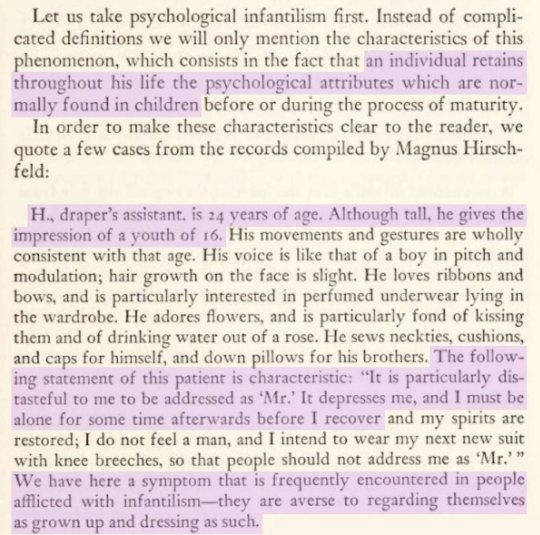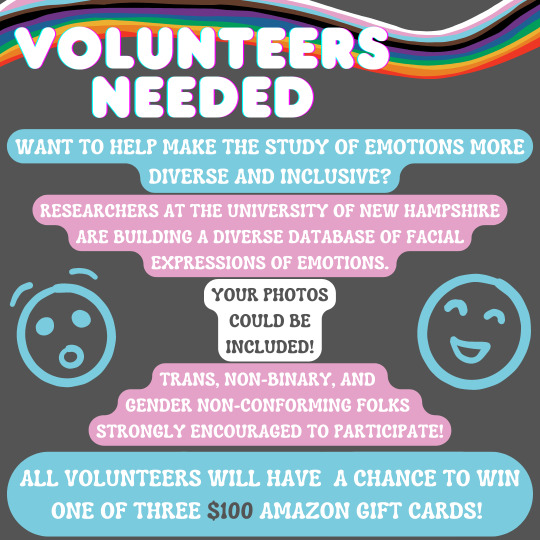#psychology research
Text
My friends at University of Nicosia in Cyprus are doing a psychology research project, looking at the relationships between pet/plant ownership and optimism.
It takes about 3 minutes, and they're looking for as wide a sample as possible.
They are taking responses until April 15th.
Please help if you can!
481 notes
·
View notes
Text
Hello everyone!
My name is Amina and I am a BSc Psychology with Honours student at the University of Hertfordshire. I am also the principal researcher of a study that aims to investigate whether judging category relatedness within semantic memory can be influenced by the level of typicality the items have alongside whether high versus low autistic traits have any effect on the performance of different types of processing.
I am currently taking volunteers for this online study. Any adults aged 18 to 65 can volunteer and you do not need an official Autism diagnosis to take part.
In the study, you will be given an item/ definition/ scenario at the top of your screen and will have to decide which of two following words match best to that using your keyboard. After that is completed you will be given the RAADS-14 questionnaire to complete.
It will take roughly 15 minutes to complete. However, a maximum of 30 minutes is given for the entire study to be completed including the information sheet, consent form, debrief sheet, and the “breaks” given (which are just for momentarily resting your eyes and hands), otherwise I cannot use your data. Please note that this study cannot be completed on a mobile phone or tablet, it must be done on a computer/laptop as the keyboard is required for the study’s completion.
You can completed this study at anytime until 23:59 GMT on Friday 1st of March here:
https://research.sc/participant/login/dynamic/0D915D45-8D85-44F9-9B63-376AF0C70573
This study has been approved by the Ethics Committee at the University of Hertfordshire and is also being conducted under the supervision of Dr. Nicholas Shipp.
Your participation is very important for this study and is very much appreciated.
Thank you for your time!
Many Thanks
Amina
EDIT: Study is now no longer taking participants!!! Thank you all who took part and spread the word of my study, it definitely means a lot to me 💟
#autistic traits#conceptual processing#typicality#processing#mental processing#autism spectrum disorder#psychology study#psychology research#undergraduate#student dissertation
308 notes
·
View notes
Text
Hi, I’m Emma, honours student at the University of Manitoba, and principal researcher of the “Mind wandering, inattention, and attentional control” study, which aims to investigate the cognitive mechanisms underlying mind wandering and its relation to Adult Attention-Deficit/Hyperactivity Disorder (ADHD).
We are currently seeking volunteers to participate in our online study. This study is intended for any adults, regardless of whether you have been diagnosed with, or suspect you have, ADHD.
In our study, you will complete a sustained attention task known as a go/no-go task. Periodically, the task will pause, and you will be asked to report on your thoughts and experiences just prior to the prompt. Following the sustained attention task you will complete brief questionnaires about your personality, prior experiences, and demographics.
The study will take approximately 30 minutes. You can complete the study anytime online at:
https://attentionandlearninglab.com/2023/HE2022-0321-COM/
This research has been approved by the Research Ethics Board at the University of Manitoba, Fort Garry campus, and is being completed under the supervision of Dr. Nicholaus Brosowsky.
Your participation is extremely important for the study, which we thank you in advance.
Kind regards,
Emma Fernando
Principal Investigator contact information:
Emma Fernando, Student
University of Manitoba
Email: [email protected]
Principal Investigator contact information:
Dr. Nick Brosowsky, Assistant Professor
University of Manitoba
Email: [email protected]
#psychology#adhd#adult adhd#research#psychology research#attention#mind wandering#attention deficit hyperactivity disorder#inattention#university#adhd memes#adhd culture#my adhd#adhd post#research survey#research study
502 notes
·
View notes
Text
Asking for research help from the trans community

So, I asked about this a while back... but I'm still looking for participants for a research study into the experiences of transpeople who have undergone therapy as part of obtaining gender-affirming surgery.
Due to some unforeseen circumstances... If I don't meet my participant goals in the next month or two... I might have to restart my entire dissertation process... which means two years of work down the drain on this.
Please, if you've ever had thoughts about that experience, or know someone who does, and you qualify for the study, PLEASE sign up, your experiences can help with helping therapists understand what the experience is like from the communities perspective, not just individually but more generally.
For any who can't read the flyer, for whatever reason, requirements are simple:
Be over 18 years of age.
Currently residing within North America or territories thereof.
Be comfortable communicating in English.
Have undergone therapy as part of obtaining gender-affirming surgery.
If you're interested, you need to complete a very short screener questionnaire at:
#lgbtq#transgender#transgender research#psychology#psychology research#Help me be get my doctorate so I can write these letters for transpeople!
220 notes
·
View notes
Text
Hi friends!!
Some of you may know I’m a psychology major, and currently I’m doing a study on how noise sensitivity and learning styles may or may not predict academic performance in undergraduate college students! This is to fulfill some requirements to earn my degree, and in order for this study to be successful, I need at least 107 participants. If any of you who are undergraduate college students are interested in participating, all it is is taking a survey to assess your noise sensitivity level, learning style, and academic performance level. No personal information is collected, there is an option to have your email recorded if you want to be entered in a drawing for 1 of 4 $25 Amazon gift cards as a thank you for participating, but this is by no means required :)
I would really appreciate it if any of you would consider taking the survey, and I will post the link to it in a few weeks when I have IRB approval to launch the study! This is completely voluntary participation and please do not feel obligated to participate, only if you want to!
#psychology#psychology major#behavioral sciences#research#psychology research#behavioral sciences research#noise sensitivity#noise sensitivity research#learning styles#learning styles research#academic performance#academic performance research#undergraduate college students#undergraduate research
23 notes
·
View notes
Text
A bit of transage history: Magnus Hirschfeld, the guy whose institute of sexology n*zis burned, actually had transage patients too!
So we probably would have made more progress in transage acceptance too, in addition to transgender and gay rights, if the institute hadn't been burned.

Also definitely planning to include Magnus Hirschfeld and at least one transage character in my story :)
There's gonna be a leftist Germany and no WWII, but Magnus Hirschfeld is also going to open a second institute in Russia. Even historically Soviet Union decriminalized homosexuality from 1922 to 1929, but it's gonna be even more queer friendly in my story :)
#transage#transage history#queer history#magnus hirschfeld#age dysphoria#gender dysphoria#transage research#sexology#historical sexology#sexology research#psychology research#historical psychology
97 notes
·
View notes
Link
Hi, all!
As you may know, I am working on a study about stigma attached to mental illness and how it impacts thought patterns for my PhD dissertation. I would like to invite you to participate in a brief research survey if you are at least 18 years of age and if you have a mental illness (or a mental health condition, or whatever you feel is the best term for it). Your participation is voluntary, you can exit the survey at any time, and your responses will remain anonymous. The survey should take 10-15 minutes to complete.
You can access the survey by clicking this link: https://www.surveymonkey.com/r/2R3JB3P Please feel free to forward this link or share it with anyone who is eligible for this research and may be interested in participating.
Thank you for your support!
#psychology#research#psychology research#research study#psychopathology#mental illness#mental health#stigma#depression#anxiety#social anxiety#autism#autism spectrum disorder#agoraphobia#schizoid personality disorder#adhd#attention deficit hyperactivity disorder#generalized anxiety disorder#borderline personality disorder#dissociative identity disorder#histrionic personality disorder#narcisstic personality disorder#major depression#major depressive disorder#bipolar disorder#schizophrenia#anorexia#anorexia nervosa#bulimia#bulimia nervosa
87 notes
·
View notes
Text

3.5k over the wordcount 🫠
#student memes#uni memes#university memes#student life#dissertation#dissertation memes#dissertation life#psychology student#university#psych student#student#uni life#research project#final year project#university life#university student#research proposal#research memes#research life#psychology research#write up#research methods#academic writing#thesis#researchers#word count#ineedfairypee#fairypeememes#I Need Fairy Pee
5 notes
·
View notes
Text
Are You Interested in ADHD Research? Here’s Where to Start
A reader recently asked me, in reply to a recent blog post about Russell Barkley, what important research is being done on ADHD, and who is doing it.
The best place to start exploring ADHD research is with the World Federation of ADHD International Consensus Statement (open access PDF here). This 2021 meta-analysis lists 208 evidence-based conclusions about ADHD.
It makes an excellent introduction to ADHD research because it spans a variety of topics, including:
Who has ADHD and how common it is worldwide
Genetic and environmental causes,
How the brain differs in ADHD,
How ADHD affects skills in cognitive and academic areas,
What treatments are safe and effective,
What life outcomes affect people with ADHD -- including educational achievement, peer relationships, health problems, rates of accidents and substance abuse, quality of life, and more.
The paper is well organized, with the conclusions placed under clear, useful topic headings.
The writing style seems clear, and fairly easy to read. There’s not much jargon, as research papers go. However, I’m a former cognitive neuroscientist who has probably read thousands of research papers, so your mileage may vary, depending on your experience reading psychology and neuroscience research papers.
Who:
There were 80 authors from 27 countries and 6 continents, led by prolific researcher Stephen V. Faraone.
Authors were representatives of national and international ADHD organizations, such as the World Federation of ADHD, EUropean NETwork for Hyperkinetic DisorderS (Eunethydis), the Latin American League of ADHD, the Chinese Society of Child and Adolescent Psychiatry, etc.
What they Did:
1. The authors reviewed studies that had at least 2,000 participants, meta-analyses of five or more studies, and meta-analyses with at least 2,000 participants.
2. Based on this research, the authors created 208 evidence-based statements about ADHD.
3. Finally, 403 people read the manuscript and agreed with its contents.
Why:
This was the second international consensus statement written about ADHD. It updates the original statement by “cataloging important scientific discoveries from the last 20 years.”
“Nearly 2 decades ago, an international team of scientists published the first International Consensus Statement on ADHD. They sought to present the wealth of scientific data attesting to the validity of ADHD as a mental disorder and to correct misconceptions about the disorder that stigmatized affected
people, reduced the credibility of health care providers, and prevented or delayed treatment of individuals challenged by the disorder.” [bold added by me].
Keep in mind that not every interesting topic in ADHD research is covered:
“If a topic is not included in this document, it does not mean the topic is unimportant; rather, it means the evidence found was insufficient to allow firm conclusions. This could be because there were insufficient studies of quality, because no attempt was made to assess publication bias, or because the data available did not support the claims made.”
What they Found:
Here are some of the conclusions I think will be most interesting and important to ADHD people and their supporters:
ADHD is not new. Signs and symptoms have been recognized as clinically significant for over 200 years.
The diagnosis of ADHD is valid, based on standard criteria for the validity of a mental disorder.
ADHD occurs throughout the world. It affects about 6% of youth and 3% of adults, and is more common in males than females.
ADHD has not become more common in the past 30 years.
There are many genetic and environmental causes for ADHD.
Environmental causes typically affect fetuses and newborns. Environmental causes include: exposure to toxins; nutrient deficiencies; very/extremely preterm birth or low birthweight; extreme deprivation, stress, infection, poverty, or trauma early in life; or traumatic brain injury early in life.
There are differences in the brain between groups of people with and without ADHD. However, these are not useful for diagnosing ADHD. First, these differences are typically small. Second, they do not differ between ADHD and other disabilities.
Differences in the brain are structural (such as cortical surface area, gray matter volume, white matter integrity) and functional (activation in specific areas in general and while doing specific tasks, as measured by fMRI and electroencephalogram activity).
ADHD medications do not change brain structure. They do affect brain function, especially in inferior frontal and striatal areas that are atypical in ADHD.
As a group, people with ADHD have deficits in a variety of abilities measured with psychological/neuropsychological tests, including: academic achievement (reading, spelling, arithmetic); working memory; various forms of attention; planning and organization; impulsive decision making; and a preference for small immediate rewards over large delayed rewards.
Some medical problems are more common in ADHD, including allergies and asthma; obesity; sleep disorders; somatic disorders; and more.
ADHD can reduce quality of life for young people and their parents, relative to typically developing young people and their parents.
Children and youth with ADHD are more emotionally disregulated. They may be more emotionally reactive to novel or stressful events.
Children and youth with ADHD are more likely to have emotional problems, conduct problems, or peer problems/difficulty socializing with and rejection by peers, and to engage in bullying.
Children and youth with ADHD have higher rates of accidental injuries and traumatic brain injury (TBI), substance use disorders, risky behavior, and premature death.
Children and youth with ADHD have higher rates of suicide.
People with ADHD are more likely to be both perpetrators and victims of crime. However, they are also more likely to make false confessions.
People with ADHD are more likely to experience educational underachievement, such as lower achievement, needing special education services, dropping out of school, or not graduating high school on time.
Several medications are safe and effective for treating ADHD symptoms, including both stimulant and non-stimulant medications. These medications have specific adverse effects, including on sleep and children’s height gain.
Some non-medication treatments for ADHD are safe and effective, including “behavioral and cognitive-behavioral therapies,” computer-based cognitive training and neurofeedback, omega-3 fatty acid supplements, and exercise.
What’s Next?
Remember that not every research finding about ADHD was included in the paper. The Discussion section lists things we still need to learn more about. Here are some of my favorites:
How culture affects the way ADHD manifests and responds to treatment
How ADHD affects older adults
Effects of stigma on people with ADHD
The nature of emotional regulation symptoms of ADHD, and whether they should be added to the diagnostic criteria
In addition, I noticed some topics were missing despite a large body of research exploring them, and in my opinion, good evidence (at least from studies with fewer than 2,000 participants):
The overlap between ADHD and other developmental disabilities, such as autism, dyslexia, dyscalculia, and developmental coordination disorder (DCD)/dyspraxia.
The role of dopamine in ADHD.
The rates of anxiety and depression in people with ADHD.
Variability in performance (especially response time) from moment to moment, which researchers call “intra-individual variability,” and which I’ve read is perhaps the best-supported symptom of ADHD -- is mentioned as part of the findings of one meta-analysis (#67), but not as a fact about ADHD in its own right.
How can I use the paper to learn more?
Here are some ways you can use this paper as a jumping-off-point to learn more about research findings that interest you. These suggestions are aimed mostly at people who don’t read a lot of research papers, so feel free to ignore them if you have more experience.
1. First, see Table 1 for the summary of findings. You can follow links from the table to whichever findings most interest you.
2. Read the introduction, discussion, and the sections that interest you.
3. Look at the references for claims that seem interesting or surprising.
Who wrote these papers? Check out the authors’ websites, and see what they’re studying. Search Google scholar for their names, and you will find a list of their papers, which you can sort by date.
4. Follow up by reading interesting cited papers: The easiest way to find specific papers is to search Google scholar for the titles. You can always find the abstracts free at the publisher’s website. On Google Scholar, you can often find a free pdf of the full text on the right-hand margin of the page. (If you don’t see one there, click the button “See x versions” next to the link to “Related articles”).
Have you read the International Consensus Statement? What did you think? Did anything in it, or not included, surprise you?
#adhd#actually adhd#research#psychology research#adhd research#disability research#tw medication#cw medication#medication#Neuroscience#working memory#attention#impulsivity#diagnosis#neurodivergence#disabilities#disability#emotional regulation#emotional dysregulation#executive function#executive functioning#executive dysfunction#quality of life#social#health#tw suicide#tw bullying#adhd treatment
48 notes
·
View notes
Text
Hi guys! I am currently running a study as one of my senior research projects. It is examining the difference in languages spoken by bilinguals and how that impacts cognitive flexibility. No identifying data is being collected, so it will be completely anonymous. It is relatively short, and shouldn't take longer than 30 minutes. anyway if you guys have time at some point please consider taking it! it would mean a lot to me (although please don't tell me if you took it as it affects the integrity of the study.) and my sample size. Any way here it is! there is more information on the first page, and the link is below.
4 notes
·
View notes
Text
Mental Well-Being and Mental Health Awareness:
Hello! I have joined a mental health ambassador program in collaboration with a Certified Therapy practitioner. My job is to create awareness regarding mental health issues to the best of my abilities. To understand the things that I can do now, not only to create awareness but bring a change in the thinking patterns as we grow up in the society. For the next generation to come, and for our loved ones who might be currently going through something.
You can start by telling me about the ways you think it would help you to better understand notion of mental health and mental well being. What could have helped you better understand about this topic when you were young and break the stigma? How would you like to receive more information and awareness regarding this matter?
And, if you are comfortable, you can share your personal experiences about struggling with mental health to help me have a better insight into the problems.
You can connect with me through dms or just drop an ask.
Thankyou for listening!!
#psychology#psychblr#clinical psychology#psychiatry#psychology student#psychologist#research#psychology research#psychopathology#psychodynamic#depression#generalized anxiety disorder#tw disordered eating#psychoanalysis#psychology aesthetic#dark acamedia#bookblr#psych#psych studyblr#student#study#desiblr#desi studyblr#desi academia#desi dark academia#anorexia#maladaptive daydreaming#adhd#bpd#bipolar
11 notes
·
View notes
Text
Hello everyone!
I currently have a study for my psychology undergraduate degree. The study takes about 15 minutes to complete.
Here's a brief description:
Judging category relatedness within semantic memory can be influenced by the level of typicality the items have and autistic traits. The purpose of this study is to understand whether performance on multiple categorization tasks is affected by autistic traits. You don't need a diagnosis to take part. The only requirement is to be in the age range 18 to 65.
Do keep in mind this study cannot be completed on mobile phones, it must be done on a computer/laptop as the keyboard is required for completion. Also, the study has built in breaks but the maximum amount of time you can spend on this is 30 minutes and if you exceed this time I won’t be able to use your results.
#psychology#psychology research#conceptual processing#autistic traits#student#university#dissertation#student dissertation#study#experiment#college#college student#college studies#university student
5 notes
·
View notes
Text
VOLUNTEERS NEEDED

Hey! I'm working on some research this summer and would appreciate some help! Please participate if you are interested (everyone is welcome to participate!) and if you don't wish to participate, please share this as much as possible!
#research#psychology#emotion#facial expression#psychology research#science#taking volunteers#queer#transgender#gender diversity#emotion research#queer science
2 notes
·
View notes
Text
youtube
Soooo… found some stuff for myself but it also is REALLLLY helpful in breaking down Boreo for The Secrets of the Sojourn Sands fic I’m working through them layers YALL. WE WIIIIIL HEAL. We will also have healthy real live by the end oof I can’t waaaait!!!
2 notes
·
View notes
Text

Hello there, friends!!
Good news— the study I previously posted about is ready to launch!! For those of you who did not see my last post, I’m doing a study on how noise sensitivity and learning styles may or may not predict academic performance in undergraduate college students! This is to fulfill some requirements to earn my degree, and in order for this study to be successful, I need at least 107 participants. If any of you who are undergraduate college students are interested in participating, all it is is taking a survey to assess your noise sensitivity level, learning style, and academic performance level. No personal information is collected, there is an option to have your email recorded if you want to be entered in a drawing for 1 of 4 $25 Amazon gift cards as a thank you for participating, but this is by no means required :)
I would really appreciate it if any of you would consider taking the survey! This is completely voluntary participation and please do not feel obligated to participate, only if you want to! If you do not wish to participate and/or or not eligible, you can still help me and my awesome research partners out by reblogging this post and spreading the word, just like some of you did with my previous post (and even if you do participate, reblogging will help us out even more)!
Thank you again everyone! Here is the link:
#psychology major#psychology research#psychology#noise sensitivity#noise sensitivity research#behavioral sciences#behavioral sciences research#psych major#psych research#learning styles#learning styles research#academic performance#academic performance research#undergraduate research#research
5 notes
·
View notes
Text
What makes people behave badly online?!
Hi everyone, I'm currently doing research for my thesis project that explores individual differences and online behaviour! If you're 18 years or older, I would really appreciate it if you consider participating in this voluntary, anonymous questionnaire. It should take approximately 30 minutes of your time and by participating, you enter the draw to win 1 of 3 randomly drawn $25 e-gift vouchers!
https://federation.syd1.qualtrics.com/jfe/form/SV_blxGunPwhPM6yVw
Thank you so so much!!
#psychology#research#online behaviour#trolling#ipv#cyber dating abuse#relationship#dating#psychology research#social science#thesis#participants needed#participants#mental health#research recruitment#research survey#dissertation#survey#questionnaire
8 notes
·
View notes